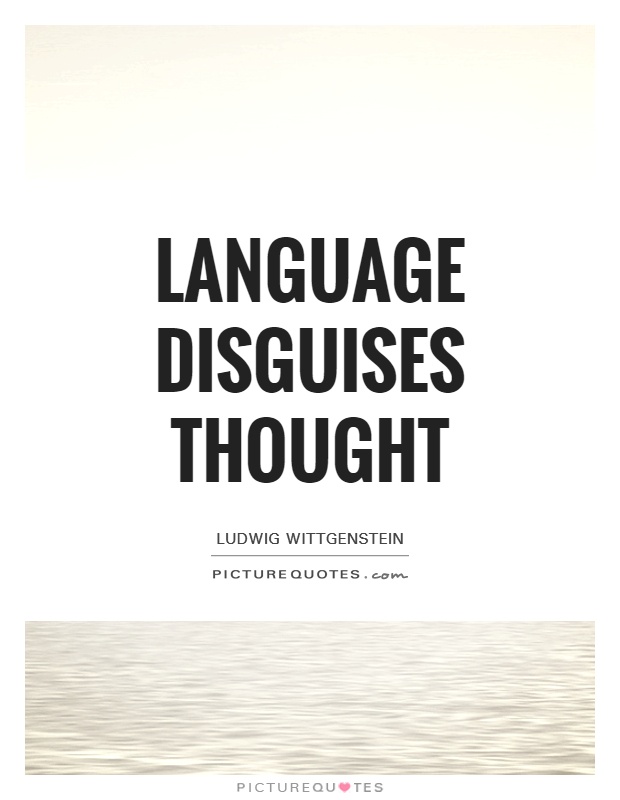Language disguises thought

Language disguises thought
Ludwig Wittgenstein, a renowned Austrian-British philosopher, is often associated with the idea that language disguises thought. This concept is central to his work on language and its role in shaping our understanding of the world. Wittgenstein believed that language is not simply a tool for expressing thoughts, but rather a system that structures and limits our ability to think and communicate.Wittgenstein's early work, as presented in his seminal work "Tractatus Logico-Philosophicus," explores the relationship between language and reality. He argued that language is a system of symbols that represent the world, but that these symbols are limited in their ability to accurately capture the complexity of reality. In this sense, language acts as a disguise for thought, as it simplifies and distorts our understanding of the world.
Wittgenstein later developed his ideas on language in his posthumously published work "Philosophical Investigations." In this work, he focused on the ways in which language is used in everyday communication and how it shapes our understanding of the world. He argued that language is not a fixed system of rules, but rather a dynamic and evolving form of communication that is shaped by social and cultural practices.
According to Wittgenstein, language disguises thought by imposing a structure on our thinking that may not accurately reflect the complexity of our experiences. He believed that language is inherently ambiguous and that words can have multiple meanings depending on the context in which they are used. This ambiguity can lead to misunderstandings and miscommunications, as individuals may interpret words differently based on their own experiences and perspectives.
Overall, Wittgenstein's ideas on language and thought highlight the complex relationship between language and reality. He believed that language is a powerful tool for communication, but also a source of limitation and distortion in our understanding of the world. By recognizing the ways in which language disguises thought, we can strive to use language more effectively and accurately convey our thoughts and experiences.












 Friendship Quotes
Friendship Quotes Love Quotes
Love Quotes Life Quotes
Life Quotes Funny Quotes
Funny Quotes Motivational Quotes
Motivational Quotes Inspirational Quotes
Inspirational Quotes